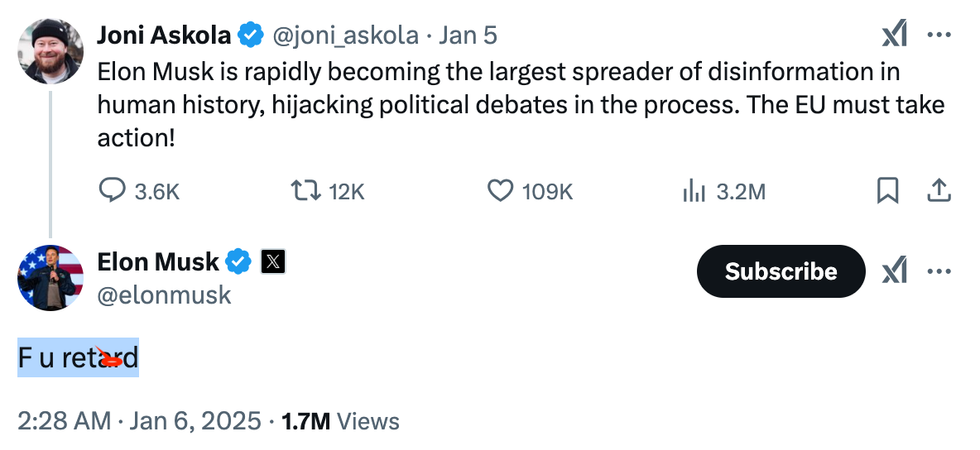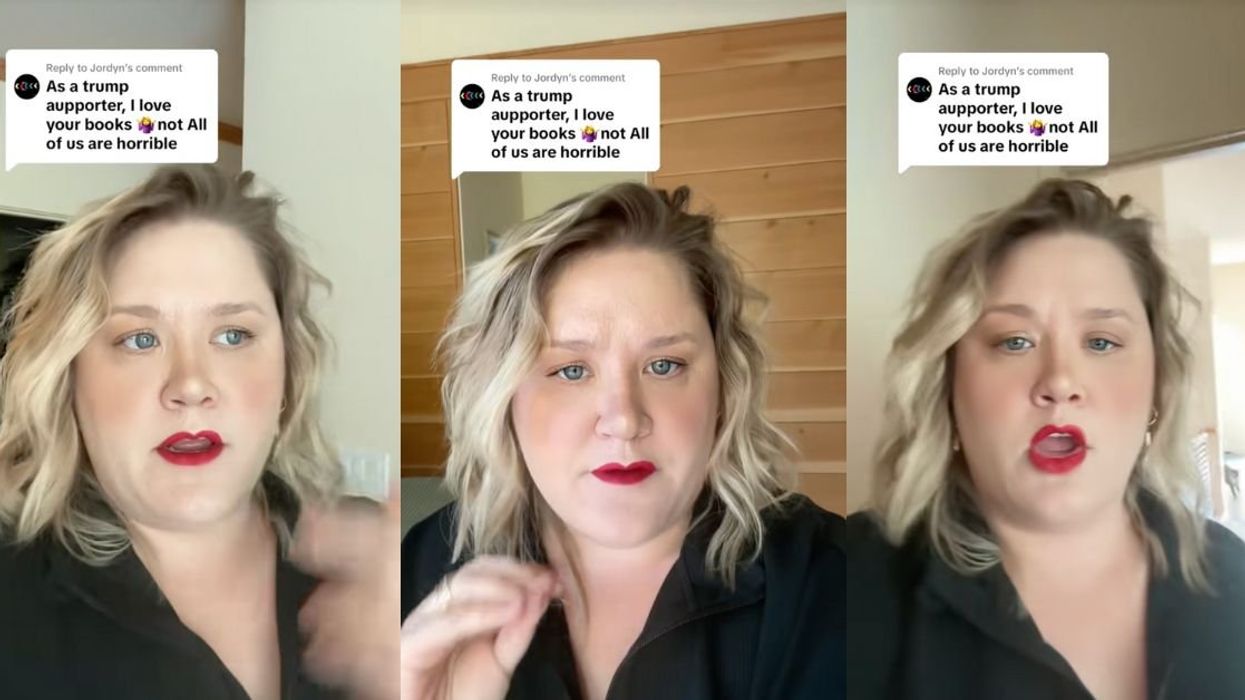Billionaire Elon Musk was widely condemned after he referred to a student on the platform by using the "r-word"—a known ableist slur—after the student called him out for being the "largest spreader of disinformation."
The R-word is a derogatory term derived from "mental retardation," which was once introduced in 1961 as a medical term for individuals with intellectual disabilities. However, the term has since been co-opted as an insult, widely used in everyday language.
According to the Special Olympics—the world's largest sports organization for children and adults with intellectual disabilities—those who use the slur "often do so with little regard for the pain it causes people with intellectual disabilities—and the exclusion it perpetuates in our society."
And that's exactly what Musk did after Finnish Ph.D. candidate Joni Askola wrote the following message on X, the social media platform owned by Musk:
"Elon Musk is rapidly becoming the largest spreader of disinformation in human history, hijacking political debates in the process. The EU must take action!"
Musk later responded with:
"F u r***rd."
You can see their interaction below.

Musk was swiftly called out, and many pointed out that his hateful remark came after he announced an "algorithm tweak" to X that he characterized as an effort to boost more "informational/entertaining" content on the platform.
Musk has repeatedly been called out for spreading misinformation and disinformation on X, behavior that has even landed him in trouble with international authorities.
Last year, Brazilian Supreme Court Justice Alexandre de Moraes said Musk will be investigated for the alleged intentional criminal use of X, as part of an inquiry into a network of individuals referred to as digital militias. These groups are accused of spreading defamatory fake news and making threats against Supreme Court justices, according to the decision's text.
In 2023, the European Union accused X of failing to counter illicit content and disinformation, lacking transparency about advertising, and employing "deceptive" design practices.
This action marked the first use of the authority granted by the Digital Services Act, which was passed in 2022. The law provides regulators with significant new powers to compel social media companies to address hate speech, misinformation, and other harmful content on their platforms.








 @PreetBharara/X
@PreetBharara/X @RepBrendanBoyle/X
@RepBrendanBoyle/X @twesq/Bluesky
@twesq/Bluesky @christopherharris/Bluesky
@christopherharris/Bluesky @evangelinewarren/X
@evangelinewarren/X






 @FrankC164/X
@FrankC164/X
 AMC
AMC